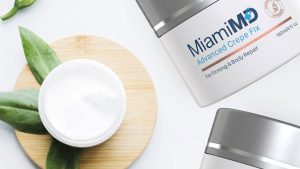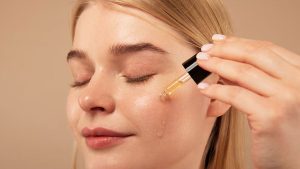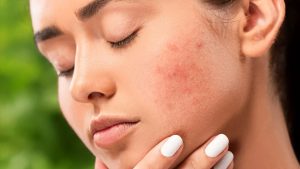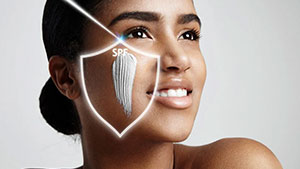What is Ascorbic Acid and Why is it Beneficial in Skin Care?
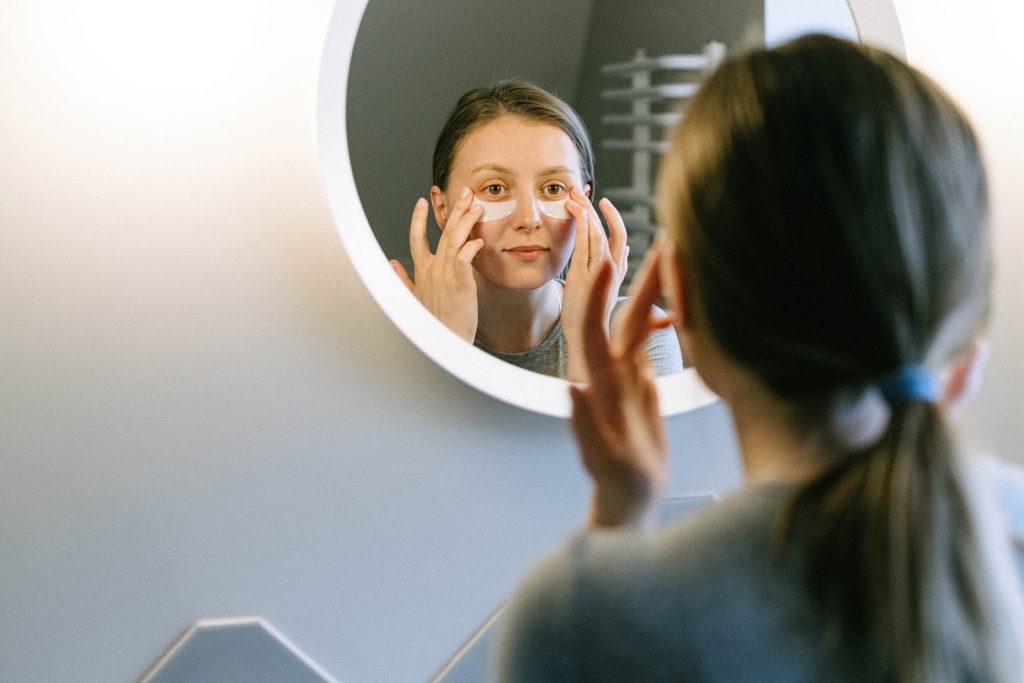
When it comes to ingredients that can help you defy your age, ascorbic acid often ends up on the top of the list. It has been said to help with a variety of different age related concerns, from helping return that radiant, youthful glow to the skin to helping smooth skin tone.
But, just like with everything related to skin care, it’s important to take a close look at the science behind the claims.
This article will help explain what ascorbic acid is, why it’s beneficial in dietary supplements for skin care, and how MiamiMD chose to include it in our functional beauty skin care products.
What is Ascorbic Acid?
To understand how ascorbic acid is beneficial in skin care, it’s important to first understand what it is on a chemical level.
To start, ascorbic acid is another name for vitamin C. Its molecular formula (how ascorbic acid is referred to on a chemical level) can be either C6H8O6 or HC6H7O6 – composed of six atoms of carbon, eight atoms of hydrogen, and six atoms of oxygen in either case. You may also hear ascorbic acid referred to by L-ascorbic acid, which just refers to the specific shape that it takes.
Ascorbic acid is considered to be a water-soluble vitamin, meaning it is easily dissolved in water. This is a good thing when it comes to its usefulness in skin care multivitamins and topicals, as it is more able to move through the skin cells.
While most ascorbic acid is made synthetically, it can also be naturally found in certain foods like citrus fruits, tomatoes, leafy vegetables (spinach and kale), brussels sprouts, and potatoes, which is why sailors would get scurvy, i.e. a vitamin c deficiency. It is an essential nutrient for the body, helping the body with iron absorption and supporting its connective tissue, bones, blood vessels, and muscle, and our daily doses of vitamin C need to be a bare minimum of 90 milligrams a day in our diet (or through vitamin C supplements).
A few common side effects of a deficiency include feeling tired and weak, muscle and joint pains, easy bruising, bleeding gums, and poor wound healing.
It’s impossible to understate its importance in our body, and it is a vitamin that we can not make on our own.
Ascorbic Acid and Skin Care
Although the benefits of vitamin C for the body are clear, its benefits of skin care can be a little more confusing to sort through. We’ll go through all of the claims and discuss them in detail, including some of the science behind how it works.
Ascorbic Acid and Collagen
The main benefits of ascorbic acid when it comes to skin care is its relationship with collagen synthesis.
As a brief refresher, collagen makes up about 75% of the protein in the skin. It is found in the dermis of the skin, which is the middle layer that is sandwiched between the hypodermis (or subcutaneous) and the epidermis (the top layer that we can see and touch). Collagen is commonly referred to as the skin’s “fountain of youth,” as it has one of the most important roles to play in how the skin ages. Collagen can help ward off the formation of fine lines and wrinkles and keep the skin looking plump and firm.
Unfortunately, over time, the production of collagen in the body starts to slow down. This is said start in our mid to late twenties to early thirties, at a rate of around 1% less collagen being produced a year. When we hit menopause, which happens in our 50s, that rate slows down even more significantly, up to 30% in the five years that surround it.
When combined with environmental factors that can make it more difficult for the body to produce collagen and even break down the collagen that is already present, things like smoking and sun damage, that lack of collagen can become very apparent in the way the skin on the face ages (and when it starts to show those signs).
When it comes to ascorbic acid’s role in the amount of collagen in the body, it is absolutely essential. Vitamin C is required to be able to make collagen, in a process known as biosynthesis. The production of collagen starts off with amino acids (the building blocks of protein), and uses vitamin C (as well as other components like zinc and copper) to help hold those amino acids together. Without vitamin C, those amino acids would fall apart and the body would not have the ability to product collage, which would have ramifications not just on the skin’s appearance but its ability to literally be able to hold itself together.
Ascorbic Acid and Melanin
One other benefit of ascorbic acid that often makes it a “holy grail” ingredient for many people is its ability to help reduce the appearance of dark spots (also known as hyperpigmentation). It does that by working to inhibit the action of an enzyme known as tyrosinase, which controls the production of melanin.
As a quick reminder, melanin is the pigment in the body that not only controls our overall skin color but also can create dark spots and other areas of hyperpigmentation, usually in unwanted places. Hyperpigmentation can be triggered by many different factors, but the most common is sun exposure and the aging process.
When ascorbic acid is applied topically to the skin, it can work to increase the appearance of brightness and help even out the overall skin tone. With consistent use, ascorbic acid may also help to prevent the formation of dark spots.
In addition, many dermatologists recommend using vitamin C with sunscreen. When applied underneath sunscreen, it can help to combat the effects of any harmful UVA and UVB rays that are able to pass through it. This can also help to neutralize free radical damage further, which is one of the main contributors to the appearance of aging skin and hyperpigmentation. It’s an easy way to help protect your skin even more, which also keeps it looking as youthful as possible for as long as possible.
How MiamiMD Uses Ascorbic Acid In Our Skin Care
When it comes to the way that we chose to include ascorbic acid in our skin care line, we took a close look at how it works and how we could use that method of action to create the most effective products with it that we can. That’s why we included it in both our topical products and our supplements, so that we can amplify its benefits are much as possible.
Oral Supplementation
Nutritional supplements, especially of vitamins that we can’t naturally make on our own, are an essential part of having a healthy, functional body. Supplementing with the right products can also help keep signs of aging at bay for as long as possible.
With that in mind, we feature vitamin C (as ascorbic acid) in our oral beauty supplement, MiamiMD’s Total Beauty Matrix. Because vitamin C can help carry oxygen throughout the body, which is critical to collagen production (as high enough levels of vitamin C are often overlooked by other products that claim to be “collagen boosters”), it helps to maintain youthful skin year after year. We use 100mg in each serving of two capsules, which should be taken with a large glass of water every morning before breakfast.
We combine that 100mg of ascorbic acid with scientifically-correct dosages of other key ingredients that the skin needs to stay looking as young as possible. Ingredients like biotin, lysine, saw palmetto, hydrolyzed collagen peptides, and our own proprietary mineral complex work together with our vitamin C to boost collagen, visibly reduce the appearance of fine lines, wrinkles, and loose skin, and fight back against against hormones that could be working to steal your youth. The result is skin that is smoother, firmer, and more youthful, as well as hair and nails that are thicker and stronger.
Topical Ascorbic Acid
We also use ascorbic acid in our topical products, specifically MiamiMD’s Dark Spot Corrector.
Ultimately, we chose a high-end, dermatologist-approved vitamin C for our formulation. When applied directly to the face, it can clear even some of the most obvious, glaring signs of the aging process.
While vitamin C is an excellent ingredient all on its own, we combine it with other ingredients that also help to visibly reduce dark spots on the face. We use alpha-arbutin, resveratrol, glycolic acid, and kojic acid, to help transform patchy, stained skin into skin with a more even, younger complexion within weeks of consistent use. It can be used not only on the face, but also on the hands, arms, and chest, if needed.
In Summary…
Ascorbic acid, which is another name for vitamin C, is incredibly beneficial antioxidant in skin care when used correctly and in the right formulation.
MiamiMD takes advantage of the impressive potential of ascorbic acid to help support youthful, firmer skin by using it in multiple products that can be used both inside and outside the body.
When you invest in your skin care, you invest in yourself. Functional beauty products that work with you and for you, even when you’re wearing them, is a way to help you be able to walk more confidently in the world again.
Sources:
https://www.webmd.com/beauty/qa/what-is-collagen
